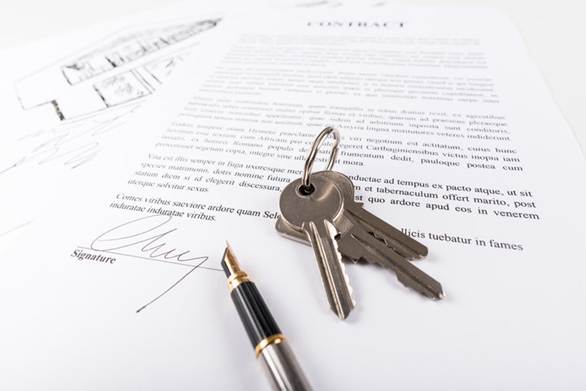
Most lease conflicts don't start out as high-stakes fights. They often start out quietly, like when rent isn't paid on time, there's an argument about who is responsible for repairs, or there's a clause in the lease that changes its meaning when things change. At first, it seems like these disagreements can be settled through a talk or a letter. But as the weeks turn into months and views become more firm, disagreements get worse. Then, for property owners, the question isn't whether or not there will be a lawsuit, but how ready they are for it when it does.
Preparation, in a way, means dividing a line between landlords who withstand litigation and those who are blindsided by it. Litigation doesn't reward the person with the loudest claim; it rewards the person who has done the most research, prepared the best evidence, and thought out their plan the most. For property owners, getting ready for court starts a long time before the case is even filed.
This is the perspective of Nativ Winiarsky, partner at Kucker Marino Winiarsky & Bittens LLP, who has spent his career litigating commercial landlord-tenant disputes in New York’s most demanding courts. His advice is simple and straightforward. He mentions that litigation in lease disputes or disagreements is not an interruption to real estate operations. Owners who treat it as an inevitability, rather than an aberration, are the ones best equipped to protect their investments.
Before litigation begins, landlords must isolate the precise issue at stake. Is the dispute about nonpayment of rent? Breach of a maintenance obligation? A disagreement over use provisions? Too often, cases are filed with broad allegations that invite counterclaims and delay.
Nativ Winiarsky emphasizes that clarity is the first step toward strength. A landlord who can point to a specific lease provision, demonstrate breach with evidence, and outline damages with precision enters litigation from a position of credibility. Ambiguity, on the other hand, weakens cases before they begin.
Documentation is what makes or breaks a lawsuit. When lease language, payment histories, and correspondence are available to clear up the disagreement, courts will not rely on memories or assumptions. An owner who doesn't keep full records is immediately at a disadvantage.
For Nativ Winiarsky, documentation is not reactive; it is proactive. Record-keeping should be something that owners do all the time, not just when there is a problem. This means keeping both digital and paper copies of all payments, notices, inspections, fixes, and conversations with tenants. In court, well-organized paperwork does more than just prove facts; it also shows the judge that the landlord is skilled and trustworthy.
Even when a landlord is in the right or has proper reasons for litigation, tenants still have a wide array of defenses available under New York law. Litigation can be slowed down by claims of warranty of habitability, challenges to warnings, or claims of landlord misconduct. These defenses may not be very strong, but they can still cause delays that cost a lot of money.
Nativ Winiarsky advises landlords to anticipate these defenses before filing suit. Landlords can answer decisively instead of reactively by preparing counterarguments, gathering supporting evidence, and figuring out possible weak spots ahead of time. When you're in court, being prepared is almost always better than being surprised.

A mistake in the process is one of the most common problems that can happen in lease disputes. No matter how strong the claim is, it can be thrown out if notices are served wrong, deadlines are missed, or the case is filed in the wrong court. Housing Court is especially strict about following the rules, and owners who don't risk wasting time and money by not doing so risk losing both.
According to Nativ Winiarsky, procedure is not mere formality. It is the context that makes litigation moral. When landlords follow the rules carefully, they protect their claims and make sure that disagreements are looked at on their grounds instead of being thrown out for small reasons.
Litigation is not always about fighting to the final judgment. In many cases, settlement offers the most efficient path forward. But settlement should not be approached emotionally or reflexively. It requires calculation.
Nativ Winiarsky stresses that settlement decisions must align with long-term interests. A landlord should ask: Does this deal keep the business going? Does it show other renters how to behave? Does lowering the risk make the lease less likely to be enforced? If you know how to use it right, settlement can be a very useful tool.
Ultimately, getting ready for lease lawsuits is about how you think as much as it is about how you do things. When landlords see disagreements as problems, they often don't want to go to court and aren't ready. People who think of disagreements as normal for business should handle them with planning, order, and respect.
For Nativ Winiarsky, the winning mindset is one that treats litigation as an operational tool - not a last resort, but a method of protecting value, enforcing agreements, and ensuring that property operations remain viable in the face of conflict.